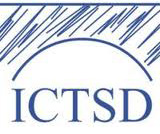Author: Shubha Ghosh
Abstract: The concept of the exhaustion, which determines the point at which the IPRs holder’s control over the good or service ceases, is the subject of increased attention by policymakers and courts in different countries. It was, in particular, at the centre of two recent United States Supreme Court decisions (Kirtsaeng v. John Wiley & Sons and Bowman v. Monsanto). While the TRIPS agreement (Article 6) leaves WTO Members the latitude to adopt their own exhaustion regime (national, regional or international), regional and bilateral trade agreements are increasingly placing limitations on the ability of developing countries to do so.
Against this background, this paper examines the exhaustion doctrine from a comparative perspective by presenting different regional and national experiences (the United States, the European Union, Brazil, China and India). It also seeks to draw lessons from these experiences that could be useful to countries that are designing their exhaustion regimes. In this regard, the paper finds that the exhaustion regime differs not only depending on the type of IPR (copyright, patents and trademarks) but also across jurisdictions and industries. It concludes that if properly tailored to specific contexts, the exhaustion doctrine can contribute towards promoting innovation, social well-being and development, in conjunction with other relevant measures and policy instruments.
Full Paper: http://ictsd.org/i/publications/181092/





